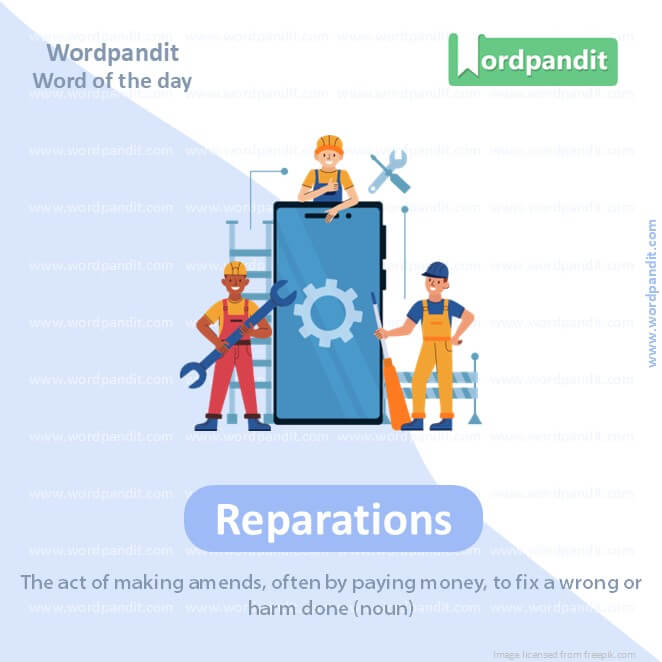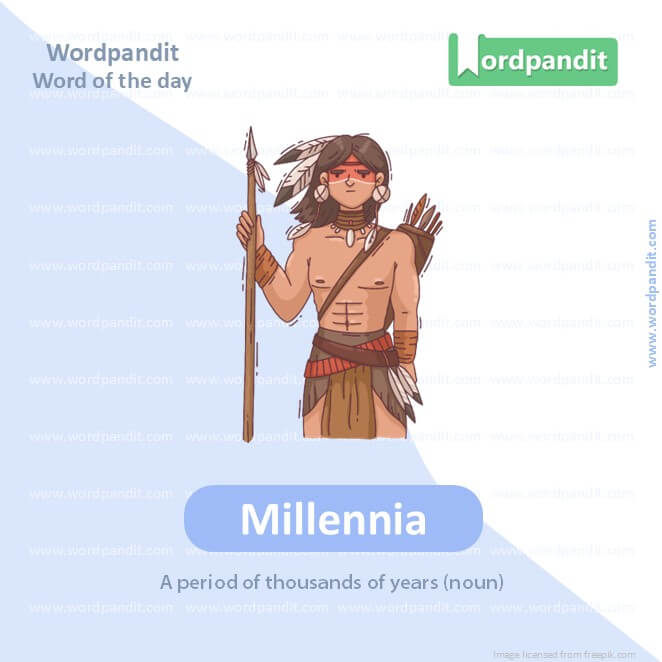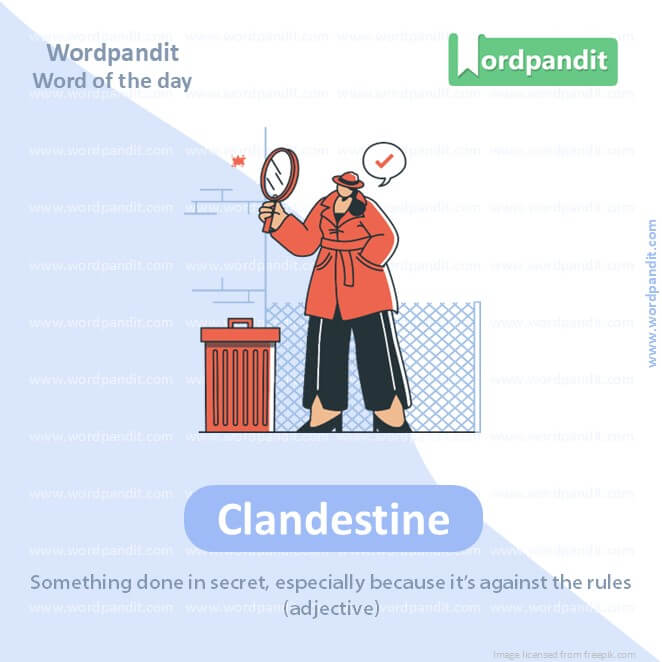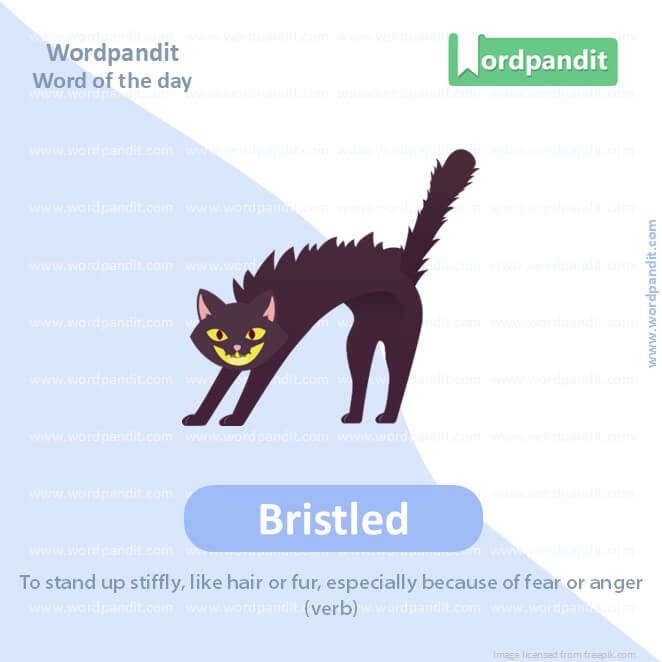Daily Vocabulary Words: Enhance Your Lexicon with Leading Newspapers & Publications
Welcome to the Daily Vocabulary section at Wordpandit!
Our mission is straightforward: to bring you essential vocabulary words featured in top newspapers and publications worldwide. By focusing on words you’ll encounter in renowned sources, we aim to help you enhance your vocabulary effectively and practically.
Our selection includes words from:
– The New York Times
– The Washington Post
– Scientific American
– BBC
– The Guardian
– Psychology Today
– Wall Street Journal
– The Economist
– The Hindu
– The Times of India
– The Economic Times
– Hindustan Times
– Live Mint
– The Indian Express
– And many more.
We are committed to your vocabulary development. Simply visit this section regularly and explore the daily posts. This is your go-to repository for commonly used words, providing significant practical benefits by familiarizing you with vocabulary from the leading publications listed above.
Make it a habit to visit our website daily and expand your lexicon with words from top newspapers and publications.
Word 1: Derelict
Context: Just 5,000 people linger in the derelict shadow of what was meant to be the first of several picturesque enclaves.
Source: Times Of India
Explanatory Paragraph: Imagine a toy that no one plays with anymore. It’s just left alone in the corner, forgotten, and maybe even a little broken. That’s what we call “derelict.” It means something is abandoned or left behind, like a building no one takes care of anymore.
Meaning: Left abandoned or neglected, often in poor condition (adjective); a person without a home, job, or property (noun).
Pronunciation: DEH-ruh-likt
Synonyms: abandoned, neglected, rundown, forgotten, forsaken, disused
Usage Examples:
1. The old house was derelict and falling apart.
2. A derelict ship was found drifting in the ocean.
3. The park became derelict after years of neglect.
4. The derelict building was finally torn down to make space for new apartments.
Word 2: Hypocrisy
Context: It not only signifies a failure of moral courage but also underscores a pervasive hypocrisy that continues to shape global governance.
Source: Aljazeera
Explanatory Paragraph: Imagine if someone tells you not to eat candy because it’s bad for you, but then they secretly eat lots of candy themselves. That’s called “hypocrisy”—when someone says one thing but does something else.
Meaning: The act of pretending to have beliefs, opinions, or feelings that one does not actually have (noun).
Pronunciation: hi-POK-ruh-see
Synonyms: deceit, insincerity, duplicity, pretense, falseness, dishonesty
Usage Examples:
1. Telling others to be kind while being mean yourself is hypocrisy.
2. The politician was accused of hypocrisy for breaking the rules he helped create.
3. People dislike hypocrisy because it feels like a lie.
4. Her hypocrisy became clear when she told us to save money but spent all of hers.

Word 3: Reparations
Context: Palestinian land is also illegal and must be dismantled, and it needs to pay reparations for damages incurred by the Palestinians.
Source: Aljazeera
Explanatory Paragraph: Imagine you accidentally knock over your friend’s block tower, and then you help them rebuild it. That’s called “reparations”—fixing or paying back for something that was damaged or lost.
Meaning: The act of making amends, often by paying money, to fix a wrong or harm done (noun).
Pronunciation: reh-puh-RAY-shunz
Synonyms: compensation, restitution, redress, atonement, repayment, amends
Usage Examples:
1. The government discussed reparations for families affected by the war.
2. After the accident, reparations were paid to repair the damaged property.
3. The company offered reparations for the harm caused by its faulty products.
4. Many argued that reparations were necessary to address historical injustices.
Word 4: Encampment
Context: She could have learned firsthand about the nature of the encampment.
Source: Aljazeera
Explanatory Paragraph: Think of a place where a group of people sets up tents to stay for a while, like when you go camping. That’s called an “encampment”—a temporary home for people to rest or stay.
Meaning: A place where a group of people, especially soldiers, sets up temporary living quarters, usually with tents (noun).
Pronunciation: en-KAMP-ment
Synonyms: campsite, camp, bivouac, settlement, base, outpost
Usage Examples:
1. The soldiers rested at the encampment after a long day of marching.
2. We saw an encampment of hikers near the river.
3. The refugees set up an encampment at the edge of the town.
4. The explorer’s encampment was surrounded by dense forest.

Word 5: Seders
Context: Palestinian solidarity sessions, and regular Seders during Passover.
Source: Aljazeera
Explanatory Paragraph: Imagine having a special dinner with your family where you eat specific foods and tell important stories. This special dinner, often part of a Jewish tradition during Passover, is called a “Seder.”
Meaning: A ceremonial Jewish meal held during Passover, which includes specific foods and retelling of the Exodus story (noun).
Pronunciation: SAY-ders
Synonyms: Passover meal, religious feast, ceremonial dinner
Usage Examples:
1. The family gathered together for the Passover Seders.
2. Each year, the Seders are a time for storytelling and remembering.
3. Traditional foods like matzah are eaten during Seders.
4. Friends were invited to share in the Seders at their home.
Word 6: Unprecedented
Context: The report documents the unprecedented atrocities and very serious violations.
Source: Aljazeera
Explanatory Paragraph: Imagine doing something that no one has ever done before, like being the first to climb a tall mountain. That’s called “unprecedented” because it’s something brand new, and no one has seen it before.
Meaning: Something that has never happened before or is without any earlier example (adjective).
Pronunciation: un-PREH-seh-den-ted
Synonyms: unheard-of, novel, unparalleled, unmatched, unique, groundbreaking
Usage Examples:
1. The discovery of the new species was unprecedented in science.
2. The country faced unprecedented challenges during the pandemic.
3. His success at such a young age was unprecedented.
4. The technology achieved unprecedented levels of efficiency.

Word 7: Millennia
Context: Though invisible at ground level after millennia of ploughing, the enclosure still survives under Hardy’s garden.
Source: The Guardian
Explanatory Paragraph: Imagine if you count 1,000 years. That’s called a “millennium.” And if you have many of those thousands of years, you say “millennia,” meaning thousands and thousands of years.
Meaning: A period of thousands of years (noun).
Pronunciation: mi-LEN-ee-uh
Synonyms: centuries, eons, ages, eras, epochs, periods
Usage Examples:
1. The ancient civilization lasted for millennia.
2. Some traditions have been followed for millennia.
3. The fossils were buried in the earth for millennia.
4. Over millennia, the mountains slowly formed and rose higher.

Word 8: Clandestine
Context: Thus began one of the hardest-fought clandestine conflicts of recent decades anywhere in the world.
Source: The Guardian
Explanatory Paragraph: Imagine trying to keep a secret so that no one finds out what you’re doing. If you’re being very quiet and careful, you’re being “clandestine,” which means you’re doing something in secret.
Meaning: Something done in secret, especially because it’s against the rules (adjective).
Pronunciation: klan-DES-tin
Synonyms: secret, covert, stealthy, hidden, surreptitious, undercover
Usage Examples:
1. The group held clandestine meetings to plan their actions.
2. He made a clandestine phone call to his friend.
3. The spy’s mission was carried out in a clandestine manner.
4. Their clandestine relationship was kept hidden from everyone.
Word 9: Annex
Context: An Israeli American who wants Israel to annex the West Bank.
Source: Aljazeera
Explanatory Paragraph: Imagine you have a house, and then you add another room to it. That new room is called an “annex”—it’s something added to what you already have.
Meaning: To add something, especially land or a building, to a larger or main thing (verb); an extra or attached building (noun).
Pronunciation: AN-neks
Synonyms: add, incorporate, attach, append, acquire, join
Usage Examples:
1. The country decided to annex the neighboring land.
2. They built an annex to the school to provide more classrooms.
3. The library’s annex was used for additional books.
4. Plans were made to annex the new territory into the city.

Word 10: Bristled
Context: Trump bristled at the notion that his struggles with women voters could cost him the election and suggested that his tough talk about immigration and economic proposals would resonate with them.
Source: The New York Times
Explanatory Paragraph: Imagine when your pet cat or dog gets scared, and their hair stands up. That’s like “bristling,” when something sticks up or gets stiff, especially when someone is upset or angry.
Meaning: To stand up stiffly, like hair or fur, especially because of fear or anger (verb); to react angrily or defensively (verb).
Pronunciation: BRIS-uld
Synonyms: stiffened, tensed, flared, ruffled, spiked
Usage Examples:
1. The cat bristled when it saw the dog.
2. He bristled at the rude comment.
3. Her hair bristled in the cold wind.
4. The guard bristled when approached by strangers.













